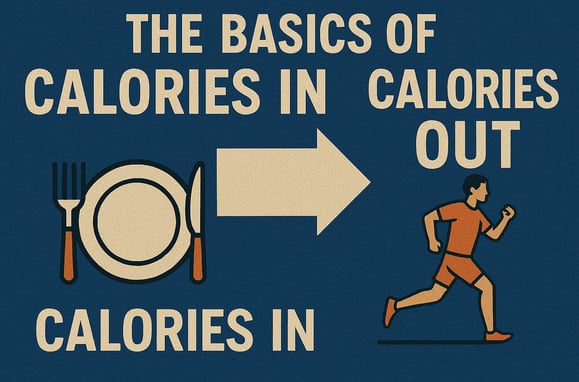Understanding Weight Management: The Basics of Calories In and Calories Out
When it comes to losing or gaining weight, the foundational principle is remarkably straightforward: it all boils down to calories in and calories out. To put it simply, if you consume more calories than your body uses, you’ll gain weight. On the flip side, if you burn more calories than you take in, you'll shed those extra pounds. But let’s break this down a little further so it doesn’t feel quite so daunting!
4/13/20252 min read


The Simple Equation of Weight Loss and Gain
When it comes to losing or gaining weight, the foundational principle is remarkably straightforward: it all boils down to calories in and calories out. To put it simply, if you consume more calories than your body uses, you’ll gain weight. On the flip side, if you burn more calories than you take in, you'll shed those extra pounds. But let’s break this down a little further so it doesn’t feel quite so daunting!
Calories: What Are They and Why Do They Matter?
Calories are a unit of measurement that represents the energy content in food. When you eat, your body converts the food into energy, using it for everything from walking to thinking. The average person needs to maintain a specific number of calories to function, which varies based on factors like age, gender, weight, and activity level. Understanding your personal caloric needs is the first step in managing your weight effectively!
Strategies for Balancing Calories
Your journey in weight management can greatly benefit from finding a healthy balance of calories in and calories out. Here are a few practical strategies to consider:
Track Your Intake: Keeping a food diary or using an app can help you understand your eating habits better. It allows you to see not just how much you eat, but the nutritional quality of your food, helping you make informed choices.
Engage in Regular Physical Activity: Exercise enhances your calorie burn. Aim for a mix of cardiovascular activities and strength training to help maintain a healthy metabolism and promote weight loss.
Choose Nutrient-Dense Foods: Focus on foods that offer more nutrients with fewer calories, such as fruits, vegetables, and whole grains. These foods fill you up without adding unwanted calories.
Stay Hydrated: Sometimes, our bodies confuse thirst with hunger. Drinking water can help curb unnecessary snacking and keeps your metabolism running smoothly.
Remember, achieving your desired weight isn’t about strict dieting or extreme measures. It's about making small, sustainable changes that fit into your lifestyle. Approaching weight management with a focus on calories in and calories out can make the process much more manageable and even enjoyable over time.
In summary, whether you're trying to lose or gain weight, acknowledging the role of calories is essential. By understanding what your body needs and maintaining an active lifestyle, you’re well on your way to achieving a healthier balance. So, take it one day at a time and be kind to yourself throughout this process!
